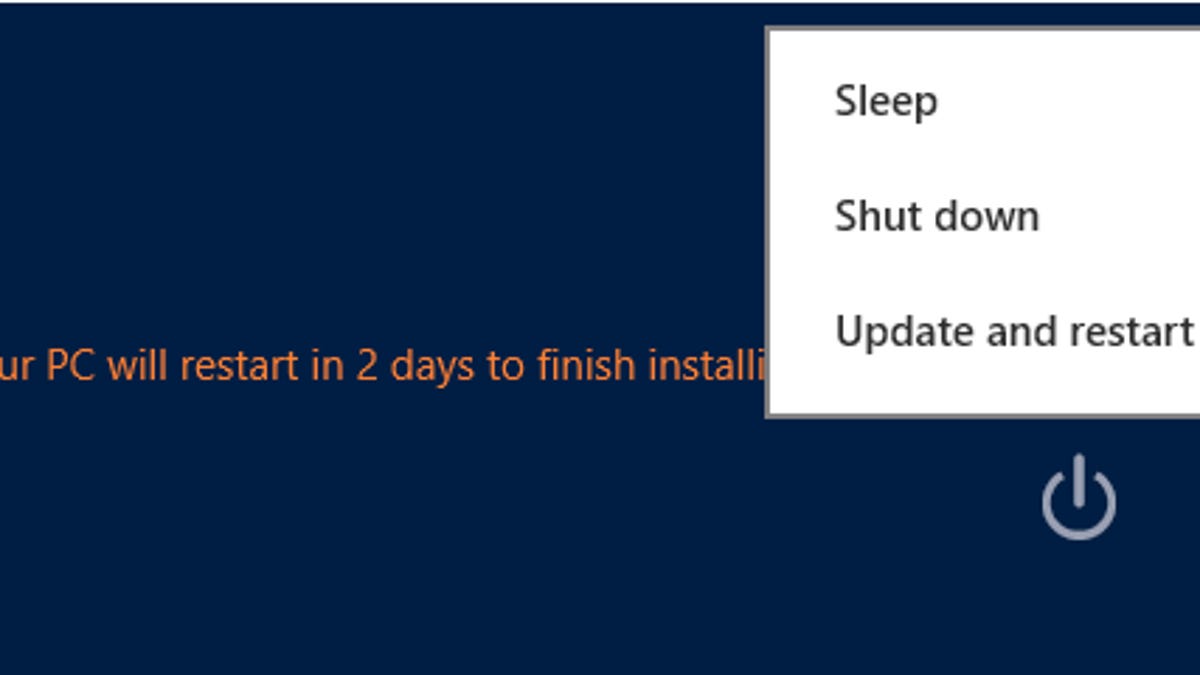Windows 8 promises fewer 'annoying' restarts after an update
The software giant says that Windows 8 will require fewer reboots after a new update is installed.

Windows users who hate having to reboot their computers after a new update is installed may find some relief in Windows 8.
Microsoft is promising that the upcoming OS will require fewer restarts after a patch, bug fix, or other Windows update finishes installing.
Restarts are sometimes a necessary evil when an update installs simply because the files that need to be updated are in use and can't be modified until the PC reboots. But Microsoft clearly realizes that updates annoy people for that very reason.
"When it comes to Windows Update, one of the most discussed topics is the disruptiveness of restarts in the course of automatic updating," Farzana Rahman, group program manager for Windows Update, wrote yesterday in the latest edition of the Building Windows 8 blog. "And for good reason--restarts can interrupt you right in the middle of something important."
One of the questions faced by Microsoft in designing the update process in Windows 8 was "What is the best way to quickly update the PC while not being intrusive to the user?"
Updates sometimes need to be applied in a timely fashion, especially if they deal with security holes, but users need to get their work done without being bothered by constant messages asking them to reboot.
How will this play out in the new OS?
In Windows 8, the Windows Update feature will consolidate all restarts for the month to coordinate on the day of Microsoft's familiar Patch Tuesday. This means that any update requiring a restart will wait until the second Tuesday of each month, essentially prompting you to reboot your PC only once a month. Exceptions would be made only in the case of critical security updates that need to be applied immediately.
After an update has completed, the new Windows Update process will notify you of any upcoming restarts and give you ample time to reboot. The notification will pop up as a message on the Windows 8 log-in screen and will remain there for three days, sparing you from constant reminders and dialog boxes about pending reboots.
If the three-day deadline passes, Windows 8 will flash an automatic restart message but only if the PC is locked or there are no running applications or open files, and therefore no chance of losing any work.
Further, any restart notifications will strive not to interrupt you in the middle of working on a document, playing a game, or watching a movie and will instead wait for a less intrusive time.
Users comfortable with Windows Update have often asked Microsoft to add third-party programs to the process. Rahman conceded that the wide variety of third-party software and installation tools would make that impossible. But she did say that the new Windows Store would offer Metro-style apps with an integrated update process to make sure they're kept up-to-date.
Microsoft hasn't given a specific release date for the OS, but has said it will arrive sometime in 2012.

